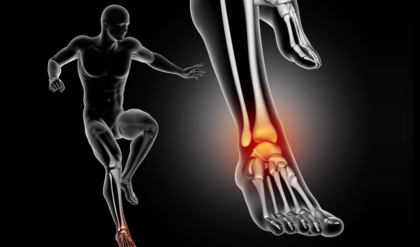Introduction to NS Horse Screen
Throughout the years, horse care has diversified and formed into a great many, ranging from anatomical check-ups to highly specialized diagnostics methods. In the dynamic world of veterinary, the NS Horse Screen has therefore come as a functionality in the evaluation of horses. This is a comprehensive guide on the NS Horse Screen which aims at unraveling the importance of the tool, how it works, as well as the different health concerns with which it deals with.

Understanding the NS Horse Screen
The NS Horse Screen is a vigorous form of health evaluation technique that is used for horses. It acts as a useful preliminary assessment that horse owners, trainers, as well as veterinarians may employ when assessing for existing precursors of leading health complications. The screen consists of several assessments, tests, and observations that are aimed in evaluating general health status of a horse.
Why is Equine Health Assessment Important?
In this case, equine health assessment is an important part of the horse ownership and management exercise. It includes a series of examinations that support the safety and welfare of horses while meeting their psychological and physiological requirements. Here are several key reasons why regular health assessments are essential for horses:
Early Detection of Health Issues
They pointed out that physical examinations periodically help the horse owners and the veterinarians detect would-be illnesses in their beginnings. This is important to know because most of the problems that affect horses may not show any signs of illness for a while and may take severe form before being diagnosed. Such examples include laminitis or colic, and if not diagnosed and treated in good time, they may cause the death of the horse. Through scheduled check-ups and assessments of the pets, the owners can detect these problems early enough so that the respective problems can be addressed and treated hence helping in enhancing positive results and reducing the suffering of the pet.
Monitoring Overall Well-Being
A comprehensive health assessment provides insights into a horse’s overall well-being. This covers not only the state of a person’s physical health, but also their mental and psychological well-being as well. To generalize, horses are very delicate animals and when they are emotionally troubled the problems are bound to manifest physically. Checkups enable the horse owners to also determine the psychological fitness status of the horse and whether or not the horse is psychologically happy to be owned. The approach to the health of this animal is such a systematic one that helps in achieving a high standard of living for the horse.
Optimizing Performance
All the competitive horses need to be checked for their health on regular basis so that the peak performance could be achieved. When it comes to competition, the horses that are fit and healthy were seen to be the ones to excel in the competition. The current assessments can even point out where a horse may be lacking and therefore one needs to take action in order to augment its feeding regime, its workout, or training schedules. Thus, when managing horses, the owners should keep them healthy so that they can perform well during their activities and also avoid injuries that be attributed to excessive exercise or any hidden health disorders.
Preventative Care
Most often equine health assessments are part of the primary prevention strategy. This therefore means that by assessing a horse on a regular basis, its owners stand to avoid major causes of disease which may manifest themselves leading to chronic illnesses. This includes vaccinations, dental, and parasites control, which are some of the factors important in the well-being of the horse. Basic check-ups have been found to assist the individual in avoiding getting sick and at the same time help in cutting expenses in future when the individual would have to undergo complicated procedures.
Enhancing Owner Knowledge and Responsibility
Health check enables horse owners to have information about their animals and therefore the activity should be conducted frequently. Knowing what the good signs are and being able to observe and judge when animal’s behavior or condition is changing promotes a pattern of responsibility and mindfulness. This knowledge is important in decision making regarding the care, the management, and the veterinary treatments to be provided to the animals. Additionally, it promotes owners to pay much attention to their horse’s health concerns so that it would improve.
Quality of Life Considerations
However, the evaluation of the horse does not only entail looking at the figures alone, but also the well-being of the horse. Since horses are sensitive animals, their health depends on the following factors: comfort, emotions, and interactions. Owners get to observe their horse and determine how different ailments can affect the well-being of their horse so that they can try to do something to improve the horse’s quality of life.
Building a Stronger Human-Horse Bond
Evaluated health checking can improve the relationship between a horse and its owner. Owners should dedicate their time to gain better health knowledge concerning their horse and in this way, they can easily build trust. This is a crucial aspect of the bond that has to exist between the horse and its owner so as to ensure that the health of the horse is well checked and monitored for. Trust in this case means that there will be proper cooperation between the two while managing as well as training, both the horses and the trainers.
Equine health assessments are essential for ensuring the well-being of horses. They facilitate early detection of health issues, promote overall well-being, optimize performance, and support preventative care. Additionally, these assessments enhance owner knowledge and responsibility, consider quality of life factors, and strengthen the human-horse bond. By prioritizing regular health assessments, horse owners can provide the best possible care for their equine companions, ensuring they lead healthy, happy lives.
Components of the NS Horse Screen
The NS Horse Screen is a comprehensive health evaluation tool to provide a detailed overview of a horse’s physical condition. It consists of several key components, each focusing on different aspects of the horse’s health. Below is a breakdown of the main components included in the NS Horse Screen:
Physical Examination
A thorough physical exam is the first step in the NS Horse Screen. During this examination, a veterinarian assesses the horse’s overall body condition, weight, muscle tone, and coat quality. The horse’s posture, gait, and any visible signs of discomfort or abnormalities are also evaluated. This examination provides a baseline understanding of the horse’s general health.
Blood Tests
Blood tests are essential in detecting underlying health issues that may not be visible during a physical exam. These tests check for infections, evaluate organ function, and monitor levels of electrolytes and other vital health markers. The results can reveal conditions like anemia, infections, or metabolic disorders, allowing for early intervention.
Cardiovascular and Respiratory Assessment
For a horse and specifically for one involved in intensive action, the cardio respiratory systems are very vital. These renders comprise the listening of the heart and lungs, the checking of the rate and rhythm of heartbeat as well as the possible stress tests. These assessments enable one to establish whether there is any dysfunction or structural flaws in either the heart or lungs which would impact on performance.
Lameness Evaluation
Lameness is a very frequent problem in horses, which may importantly affect their capabilities or even their health. Flexion tests are some of the lameness evaluation and joint palpation as well as other tendon palpation with or without X-rays or ultrasounds in some cases. This part of the screen is to assess for the presence of any musculoskeletal complaints so that they can be dealt with in the initial stages.
Nutritional Assessment
Indeed, the overall health and performance of a horse depends on the kind of food that is given to it. The nutritional assessment takes into account the current ration fed to the horse, its Body Condition Score, the work, and activity level of the horse. As a result of this, the veterinarian may need to suggest changes with regards to the feeding etiquette considered ideal for the horse in question.
Dental Examination
Oral health is one of the significant components of horses’ health which is frequently neglected. The dental exam involves features such as sharp teeth, uneven wear, and infections which could complications and may affect the chewing and the overall digestion of foods. It is thus important to take your horse for a dental checkup to avoid issues such as weight loss, poor coat condition among other health complications resulting from dental issues.
Parasite Control
Internal parasites are capable of having a significant impact on a horse’s health if not diagnosed and treated on time. Some of the features of the NS Horse Screen entail fecal examination to determine the existence of parasites such as worms. Hence, a deworming schedule may be suggested to keep the horse free from negative parasitic effects and ensure its overall health.
Reproductive Health Evaluation (if applicable)
The NS Horse Screen also contains an examination of fertility in those horses bred. This entails the study of the gonads, measurements of the hormonal profile as well as factors that might affect reproduction and breeding success. Reproductive examination guarantees that only great stratum of equines in reproduction are used and associated with primary health for appropriate offspring onset.
The NS Horse Screen as farm equipment is an extremely useful component for enhancing horse’s standard and preventing diseases. Every section of the screen targets various aspects of the horse’s health. Thus, during the examination process, one can easily identify various potential problems that may hinder the health of the horses and affect their performance. The use of screening checkups can be useful in anticipating health problems found in equine and helpful to both the equine and the owner.
Implementing the NS Horse Screen
To implement the NS Horse Screen effectively, horse owners should consider the following steps:
- Consultation with a Veterinarian: Collaborating with a qualified veterinarian is crucial. They can guide the assessment process and tailor it to the horse’s specific needs.
- Establishing a Baseline: Conducting the NS Horse Screen regularly will help establish a baseline for the horse’s health, making it easier to spot changes over time.
- Record Keeping: Maintaining detailed records of assessments, treatments, and any changes in health will provide valuable insights for future evaluations.
- Follow-Up Care: If any issues are identified during the assessment, follow-up care and treatment should be prioritized to address the concerns promptly.
Challenges and Considerations
While the NS Horse Screen is an invaluable tool, there are challenges and considerations to keep in mind:
- Accessibility: Some horse owners cannot get a veterinarian on the spot, especially in the rural areas, and most of them cannot even get one within the same day. It is also necessary to find an experienced vet and make appointments for checks as often as possible.
- Cost: One of the drawbacks of these health checkups would be of course the financial aspect of it and some of the owners might not be able to afford it. But the money spent on preventive healthcare can save a large amount of spending needed for the cure and treatment of serious diseases.
- Variability in Horse Behavior: It is still possible to obtain varying behavioral responses from horses during such tests. Negative stressors should be controlled, thereby the roles of handlers who know how to manage the horse should be to ensure that the data gotten is not as a result of stress.
How Often Should the NS Horse Screen Be Conducted?
The frequency of the NS Horse Screen depends on the age, the working intensity, and the health state of the horse. In young healthy horses, a one-time screening can suffice this will however depend on the kind of diet the horses are fed. However, there could be cases where such a frequency will be deemed necessary due to age or history of some medical condition and this could be as frequent as half yearly.
Horses that physically engage in sports or those for breeding must also undergo the screenings more often so the horse owners can have assurance that their equines are in their best shape possible and are clear of conditions that may hamper their performance or fertility.
Conclusion
The NS Horse Screen is a concept which consolidates all the fundamental physical inspections and evaluations as to the health of horses. With regard to this, horse owners should take their horses routinely for a checkup so that the animals can always be in their best physical state to perform and produce. Preventative care, early diagnosis, awareness, and much better decision making cannot be overemphasized. Through getting an NS Horse Screen, therefore, not only is your horses’ well-being improved, but you get to be a responsible horse owner with a good understanding of their health.





